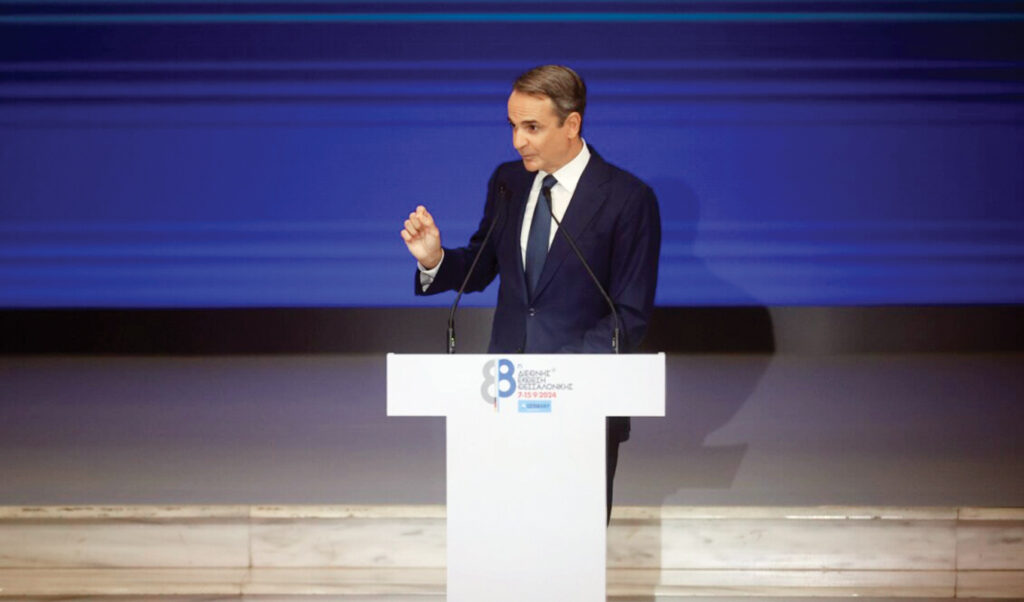The major challenge and primary test that the Prime Minister’s Office must address is undoubtedly high prices, with Kyriakos Mitsotakis aiming through his announcements at the Thessaloniki International Fair to demonstrate that the government listens to society and is determined to intervene where necessary. It has become clear that the “scourge” of high prices significantly limits household disposable income while fueling opposition rhetoric, requiring concrete responses from the government camp.
Given these circumstances, it seems logical that the largest portion of Kyriakos Mitsotakis’s speech at the Thessaloniki International Fair, according to Dimitris Andriopoulos’s report for “Apogeumatini,” will focus on the economy and the “household basket.” At the same time, he is expected to send signals to citizens, such as the old dilemma of “stability or adventures,” while also referring to moves being made in daily life areas (e.g., healthcare and education). In his speech at the Thessaloniki International Fair, the Prime Minister will also highlight a series of projects being implemented at regional level and refer to pre-election promises that have already been fulfilled, using the slogan “we said it, we did it.”
Mitsotakis has received the message from polls – Orders economic team to review the TIF “package” and add anti-inflation measures
However, as prolonged inflation has significantly limited household disposable income, the Prime Minister’s extensive reference to energy prices and his warning to companies about government intervention if price increases occur in September, shows that Mr. Mitsotakis has received the message citizens are sending through polls, as well as through complaints expressed to “blue” MPs and New Democracy officials, with grievances reaching the Prime Minister’s Office for evaluation. Therefore, as the same report notes, Kyriakos Mitsotakis has instructed the government’s economic team to review the “package” of measures to be presented at the TIF and add direct and indirect interventions that will make citizens’ lives cheaper, primarily targeting real wage increases and income enhancement by any means necessary.
Direct interventions include the adjustment of the minimum wage from April 1, 2026, which will rise from €880 to €911 and provide significant economic relief, while the restoration of triennial increases will boost salaries for more than 200,000 workers with increases up to 13.5%. It’s worth noting that gross salaries will reach close to €1,000 for those completing their triennial period, while in the public sector the average increase will reach €35-40 gross per month, approximately €250 net annually. Also noteworthy is the strengthening of uniformed personnel, who will benefit from the new salary scale with increases up to 20%, with an officer currently receiving €1,200 net potentially seeing an increase of €150-180 per month.
The news is also positive for retirees, as the increase is estimated to move between 2.6% and 2.7%, based on latest inflation data. This means small pensions (€500-850) will gain up to €275 annually, slightly larger ones (€850-1,300) €420, medium pensions (€1,300-1,500) will gain approximately €500 annually, while higher ones (around €2,700) will reach nearly €850 annually. Significant strengthening is also expected from the possible abolition of the remaining “personal difference” for more than 600,000 work veterans.
What changes for real estate
There are also indirect economic “injections.” For example, in the real estate market with the new intermediate rate of 25% for rental income between €12,000 and €35,000, a property owner with €20,000 rental income will save approximately €1,000 in taxes compared to current charges.
The new tax scale is also significant, giving an employee with annual income of €20,000 and two children, who currently pays about €1,100 in taxes, savings of around €400-500 annually due to higher tax-free thresholds and lower rates.
Meanwhile, the reduction of tax assumptions affects more than 1.2 million taxpayers and will significantly reduce the tax burden for low-wage earners, retirees, and freelancers. Special emphasis is placed on families, with tax-free amounts increasing by €1,000-2,000 for families with up to three children, while for large families, complete tax exemption is being considered for incomes up to €40,000-50,000.




